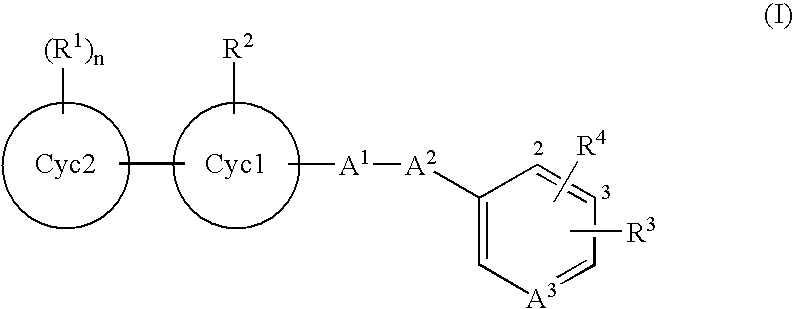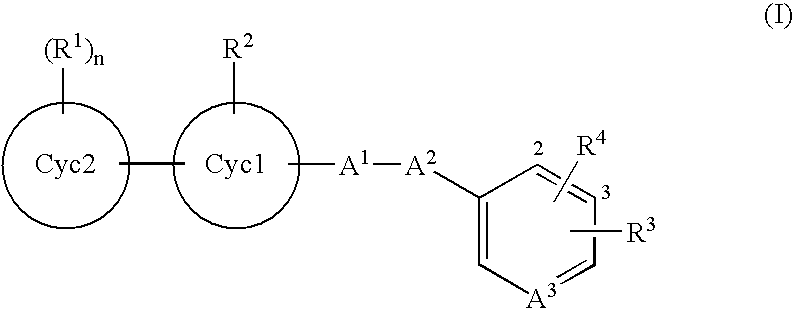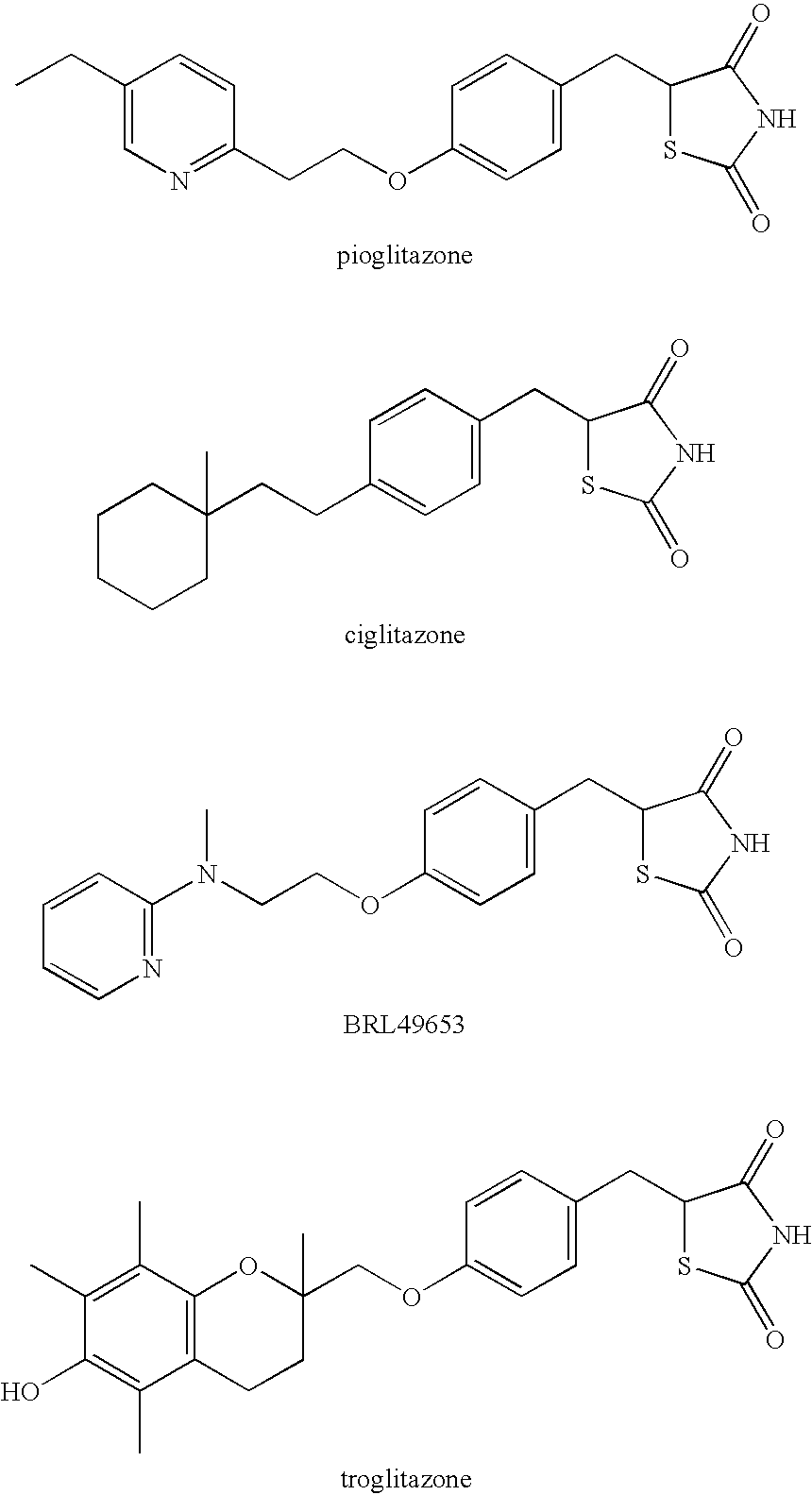Carboxylic acid derivative and a pharmaceutical composition containing the derivative as active ingredient
a technology of carboxylic acid and active ingredient, which is applied in the direction of heterocyclic compound active ingredients, biocide, organic chemistry, etc., can solve the problem that the ppar regulating effect of these compounds is not easily expected
- Summary
- Abstract
- Description
- Claims
- Application Information
AI Technical Summary
Benefits of technology
Problems solved by technology
Method used
Image
Examples
reference example 1
[0231]3-methoxymethoxybenzaldehyde
[0232]A solution of 3-hydroxybenzaldehyde (20 g), chloromethylmethyl ether (25 ml) and diisopropylethylamine (114 ml) intetrahydrofuran (300 ml) was stirred at room temperature overnight. To the reaction mixture was added ice water and was extracted with ethyl acetate. The extract was washed with a saturated aqueous solution of sodium bicarbonate, water and a saturated aqueous solution of sodium chloride, successively, dried over anhydrous magnesium sulfate and concentrated. The residue was purified by column chromatography on silica gel (hexane : ethyl acetate =25:1) to give the title compound (23 g) having the following physical data.
TLC:Rt 0.65 (hexane:ethyl acetate=3:1);
NMR (CDCl3):δ 9.98 (s, 1H), 7.42-7.56 (m, 3H), 7.30 (m, 1H), 5.24 (s, 2H), 3.50 (s, 3H).
reference example 2
[0233]3-methoxymethoxybenzylalcohol
[0234]To a suspension of lithium aluminum hydride (690 mg) in tetrahydrofuran (60 ml), was added a solution of the compound prepared in Reference Example 1 (3.0 g) in tetrahydrofuran (40 ml) and the reaction mixture was stirred at room temperature for 30 minutes. To the reaction mixture were added a saturated aqueous solution of sodium sulfate and magnesium sulfate and the mixture was filtered through Celite. The filtrate was concentrated. The residue was purified by column chromatography on silica gel (hexane:ethyl acetate=3:1) to give the title compound (2.5 g) having the following physical data.
TLC:Rf 0.39 (hexane:ethyl acetate=3:1);
NMR (CDCl3): δ 7.25 (t, J=7.5 Hz, 1 H), 7.10-6.95 (m, 3 H), 5.20 (s, 2 H), 4.70 (d, J =6 Hz, 2 H), 3.50 (s, 3 H), 1.75 (t, J=6 Hz, 1 H).
reference example 3
[0235]3-methoxymethoxybenzyl bromide
[0236]To a solution of the compound prepared in Reference Example 2 (2.48 g) and triphenylphosphine (4.64 g) in dichloromethane (150 ml), carbon tetrabromide (7.34 g) was added and the mixture was stirred at room temperature for 30 minutes. To the reaction mixture was added a saturated aqueous solution of sodium bicarbonate and was extracted with dichloromethane. The extract was washed with a saturated aqueous solution of sodium chloride, dried over anhydrous magnesium sulfate and concentrated. The residue was purified by column chromatography on silica gel (hexane:ethyl acetate=5:1) to give the tittle compound (4.41 g) having the following physical data.
TLC:Rf 0.71 (hexane:ethyl acetate=2:1);
NMR (CDCl3): δ 7.25 (t, J=7.5 Hz, 1 H), 7.10-6.95 (m, 3 H), 5.20 (s, 2 H), 4.45 (s, 2 H), 3.50 (s, 3 H).
PUM
| Property | Measurement | Unit |
|---|---|---|
| temperature | aaaaa | aaaaa |
| temperature | aaaaa | aaaaa |
| temperature | aaaaa | aaaaa |
Abstract
Description
Claims
Application Information
 Login to View More
Login to View More - R&D
- Intellectual Property
- Life Sciences
- Materials
- Tech Scout
- Unparalleled Data Quality
- Higher Quality Content
- 60% Fewer Hallucinations
Browse by: Latest US Patents, China's latest patents, Technical Efficacy Thesaurus, Application Domain, Technology Topic, Popular Technical Reports.
© 2025 PatSnap. All rights reserved.Legal|Privacy policy|Modern Slavery Act Transparency Statement|Sitemap|About US| Contact US: help@patsnap.com



